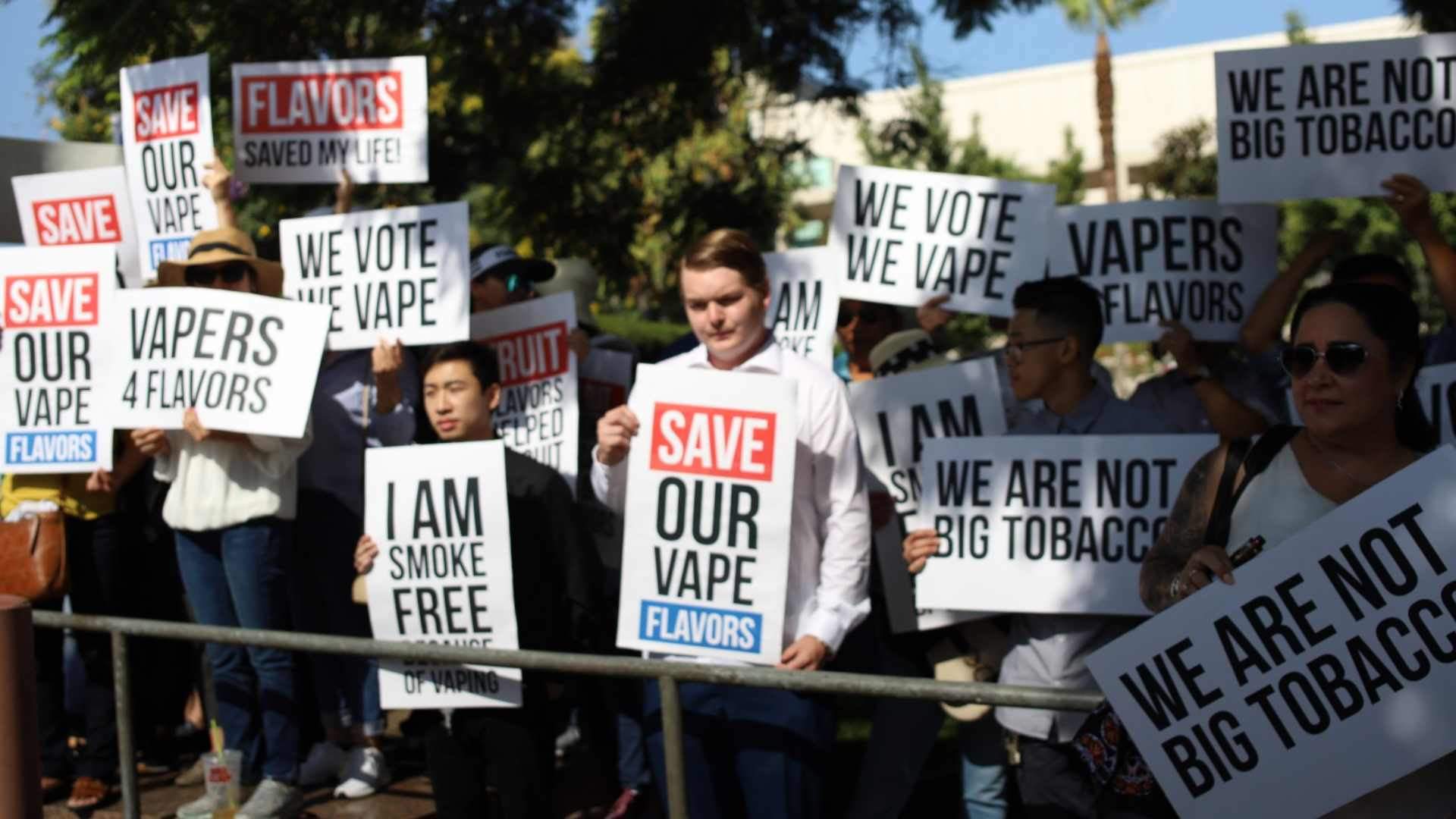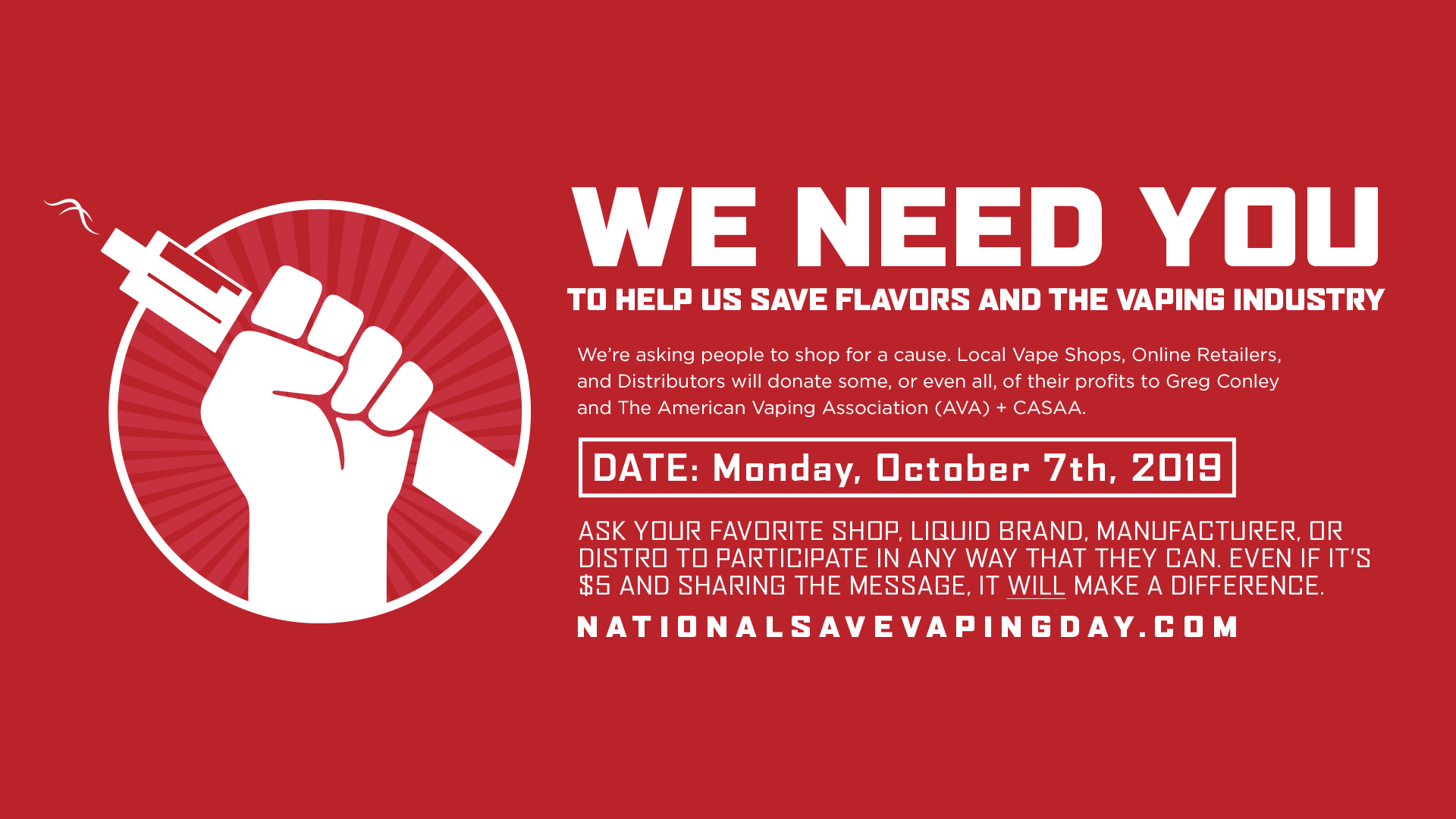Michigan’s flavor ban goes into effect on October 2, 2019. Governor Gretchen Whitmer proudly announced her reasoning behind spearheading this legislation. Whitmer’s primary argument is the rise of vaping amidst adolescents, claiming that "It would never be permitted if it was cigarettes, but we’re letting these companies target our kids, appeal to our kids and deceive our children." Many vape shops are going to go out of business because of the ban, and many shop owners have stated that they cannot continue to operate from just tobacco flavored vape products alone.
Some business owners in Michigan have proceeded to move forward on lawsuits in order to stop the vape ban. Additional to pending lawsuits, two bills were introduced with the intention of reversing all, or at least part of Governor Whitmer’s ban. On September 24th, state Representative Steven Johnson introduced a bill that would allow the sale of flavored nicotine with a nicotine level of 20mg/ml or below. The other bill, which was introduced by Representative Beau LaFave, would reverse the state’s ban, which is going into effect October 2, 2019. The reversal bill would not be able to keep the vape ban from being enacted on the 2nd of October, but they have admitted they would like to pause the vape ban and amend the “abuse of power” demonstrated by Governor Whitmer.
On August 28, 2019 the city council of Boulder, Colorado has added a flavor ban measure to the November 5th ballot for voter approval. Under these new rules, additional to the banning of the sale of all non-tobacco flavored e-liquid, the age limit in the city for purchase of tobacco and vapor products would increase to 21. The ballot includes a 40% sales tax increase on vapor products. Some vape shop owners spoke up and said that they will likely close due to a lack of operational profit.
New York Governor Andrew Cuomo has taken executive action to ban flavored vape products statewide; the ban would stand for 90 days and need to be renewed in order to continue. The only two flavors that consumers would be able to buy are tobacco and menthol. Governor Cuomo was quoted, “Is vaping better than smoking? Technically yes, but so what?” during his announcement of his flavor ban. Governor Cuomo had two main arguments supporting his ban. The first being about the outbreak of lung-related illnesses, which he related to vaping, claiming that we do not know what is contained in vapor products. The second being his concern about the youth vaping. The age restrictions in New York need enforcing, but instead of focusing on that, Cuomo decided to attack vaping all together. Meanwhile, the New York Department of Health recently stated this September:
“Laboratory test results showed very high levels of vitamin E acetate in nearly all cannabis-containing samples analyzed by the Wadsworth Center as part of this investigation. At least one vitamin E acetate containing vape product has been linked to each patient who submitted a product for testing. Vitamin E acetate is not an approved additive for New York State Medical Marijuana Program-authorized vape products and was not seen in the nicotine-based products that were tested. As a result, vitamin E acetate is now a key focus of the Department's investigation of potential causes of vaping-associated pulmonary illnesses.”
Governor Lamont of Connecticut and New York Governor Cuomo met in Hartford to discuss cooperation on the ban of flavored vaping and flavored cannabis products. Although it seems like Gov.Lamont is firmly in cahoots with the Governor of New York in this matter, he will be held up by legislation for a bit due to the conditions of other officials who demand that more pressing issues be handled first.
On September 24, 2019, Los Angeles, California was subject to a flavor ban hearing concerning the unincorporated cities within the county, which would set the tone for the following meetings concerning the incorporated cities within the county as well. Hundreds of vapers and industry members attended the meeting only to be ignored as an anti-vape organization collected and paid for a group of adolescents to attend with instructions to spit scripted responses in favor of the ban. For more insight on this event, please check out our last blog post.
Massachusetts Governor Charlie Baker banned the sale of all vape products, both tobacco and cannabis, effective for a period of four months. In response to this, at least 6 vape shops have mobilized on a federal lawsuit against the state.
Washington Governor Jay Inslee signed ordinances for a flavored vape ban this September as well. Proudly standing against vapor and using children as his soapbox. The ban will also include flavored THC products. There will be another meeting on October 9, 2019 where the state board of health will vote on the matter.
The Governor of Virginia, Ralph Northam, has announced that he is considering a vape ban and told the media to expect an announcement from him very soon. Earlier this year, Virginia raised the minimum age to 21 for tobacco and vape products.
Democratic Gov. Gina Raimondo of Rhode Island signed an executive order and banned the sale of flavored vaping products throughout the state. Governor Raimondo’s argument was rather typical, using the youth of the nation to fuel her reasoning, and mentioning the recent outbreak of illnesses.
Now Oregon is facing a potential vape ban, as legislators are discussing the possibly of a ban on all vape products, nicotine and cannabis alike for a period of six months. Now is the time for Oregon Citizens to stand together and raise their voices against the ban before it is too late.
The #Fight4Flavors and the fight for vaping continues as officials use skewed media headlines, false information, and the age-old child endangerment argument to disparage the vaping industry. There are great examples of small business owners who are determined to fight for our right to vape, and the community can observe and cultivate action with inspiration from these individuals.




Leave a comment
All comments are moderated before being published.
This site is protected by hCaptcha and the hCaptcha Privacy Policy and Terms of Service apply.